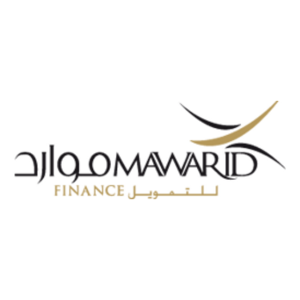In today’s digital era, the financial world is evolving at a breathtaking rate. We’re not seeing just new apps and online banks; a lot of this revolution is happening in a specific area: Islamic fintech. This is not just a trend — it’s a movement. To implement modern era all tha financial activities more smoth and smarter in an ethical way, the ancient principles of Islamic finance law is enhancing with the modern technology.
Institutions like Mawarid Finance are leading the way, showing us that true innovation can go hand in hand with strong moral principles.

What Makes Islamic Fintech Different?
Islamic finance is different in nature as it’s derived from a basis that prohibits interest (riba), excessive uncertainty (gharar), and speculation (maysir). It focuses on enhancing risk-sharing, supporting transactions with real assets, and social responsibility instead. Islamic fintech uses technology to make these principles more accessible and efficient for everyone, whether an individual or business. It is not only about taking a loan or sending a payment; it is about establishing trust, generating transparency, and developing a more equitable financial system.
A New Era for Financial Inclusion
Most promising of all, perhaps, is the way Islamic fintech can bring more people into the financial fold. For the millions excluded by conventional banking — either for religious or for merely moral reasons — Islamic fintech offers a real, viable alternative. Through Sharia-compliant credit cards and personal loans, business financing, and investment platforms, these digital solutions provide seamless access to financial services that actually align with people’s beliefs.
For example, a company like Mawarid Finance is not just providing auto and personal finance; they are also coming up with new products like their Falak Tayyeb credit cards, which are designed from the ground up according to Islamic principles. For UAE customers, this is a revolution — it provides them with financial tools that are a refreshing alternative to the traditional models.
Helping the Backbone of the Economy: SMEs
Small and medium-sized enterprises (SMEs) are the backbone of any healthy economy, and Islamic fintech is giving them the push they need to flourish. Traditional interest-based financing is all too often a major obstacle to such ventures. Sharia-compliant financing, on the other hand, offers an equity-based model that can lead to more stable, sustainable growth.
Financial instruments like working capital finance and commodity Murabaha finance provided by a company like Mawarid Finance are specifically crafted with the objective of serving SMEs in a way that meets their financial as well as moral needs. By creating such innovative solutions, Islamic fintech companies are fulfilling a crucial role in fostering economic growth and an entrepreneurial culture.
Looking Ahead: A Collaborative Future
The future of Islamic fintech is very promising. With the further development of technology, we will have more sophisticated yet easy-to-use platforms that will be able to serve individuals globally. The main goal will be to create solutions that are not only fully Sharia-compliant but also fast, transparent, and easy to use.
The key to success will be tight collaboration between fintech startups, incumbent financial institutions, and regulators. Collectively, they can ensure that Islamic finance continues to be a force to be reckoned with for ethical growth and a beacon of how technology can be leveraged for good.
Contact Us
P.O. Box 212121, Dubai, U.A.E
Tel: + 971 4 304 0800
Fax: + 971 4 423 0622
Email: customerservice@mawarid.ae



Write a comment ...